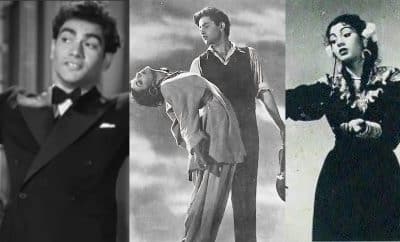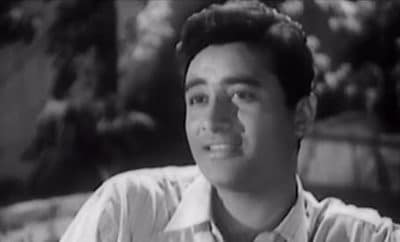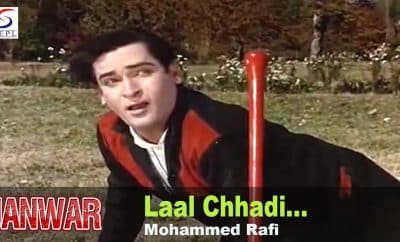Legends
Shailendra: The Lyrical Lustre Of Hindi Cinema
Poetry was his first love but family situation forced him to take up a job of a railway mechanic. He used to work in the railway workshop at Parel. His name was Shankardas Kesrilal Shailendra – for his countless admirers he was simply- Shailendra! This poetic zeal and passion appealed to a young film-maker Raj Kapoor who was in the audience of a stage programme where Shailendra recited his poem.
Shailendra was born on 30th August, 1923 at Rawalpindi. Later in his childhood their family moved to Mathura in U.P. His father hailed from Bihar. This U.P. – Bihar cultural influence was to show later in his folk-style film songs.
Shailendra’s poetic genius was in his ability to convey deepest of thoughts in simplest of words. Shailendra not only possessed the felicity of language but also had an elusive combination of simplicity and depth. He was economical in his use of words, yet his writing was very meaningful. One does not have to stretch the imagination to fathom the meaning of his lyrics. It is easily understandable. Shailendra shared special camaraderie with music duo Shankar-Jaikishan. Songs like Mera joota hai Japani, Mud-mud ke na dekh, Ramaiyya vasta vaiyya from Shree 420 (1954), Awara hoon (1951), Choti si yeh zindagani from Aah (1953) and Nanhe munne bachche teri mutthi mein kya hai from Boot Polish (1953), all set to Shankar-Jaikishen’s music, became classics. Shailendra also worked exceptionally well with composers S.D. Burman and Salil Chowdhury.
Shailendra is winner of three Filmfare Awards as Best Lyricist. He won it for two years in succession, one for Yahudi in 1958 and second for Anari in 1959. He won his third Filmfare Award for film Brahmachari in 1968. Shailendra’s songs always dazzled with their lyrical lustre. In more than 170 films, he wrote warm souled poetry. Shailendra’s natural form of self-expression was writing. His acute sensitivity and emotionalism were responsible for deeply-felt lines like `Aaj phir jeene ki tamanna hai, aaj phir marne ka iraada hai’. Besides Raj Kapoor, Shailendra formed a close association with Bimal Roy through films like Do Bigha Zameen (’53), Madhumati (’58) and Bandini (’63). He even wrote the dialogues for Bimal Roy’s Parakh(’60).
In 1962, Shailendra started the production of the Raj Kapoor-Waheeda Rehman starrer,Teesri Kasam. Shailendra had wanted to make a film of artistic merit but had no aptitude for film production. The film dragged on for four years and Shailendra became increasingly disillusioned with the film industry. The poet’s soul could not take the crash of his debut production. Shailendra died on 14th December 1966 at the age of 43 owing to tensions associated with film production, anxiety for financial loss and alcohol abuse.



